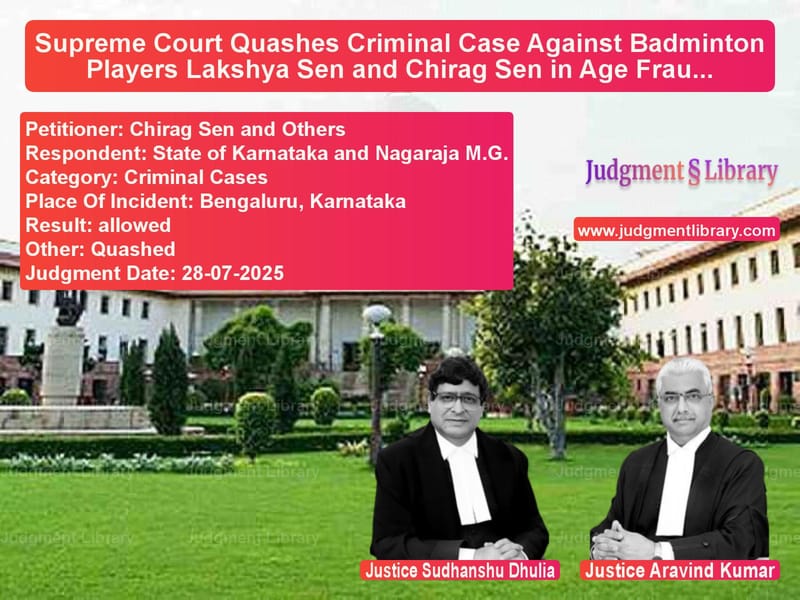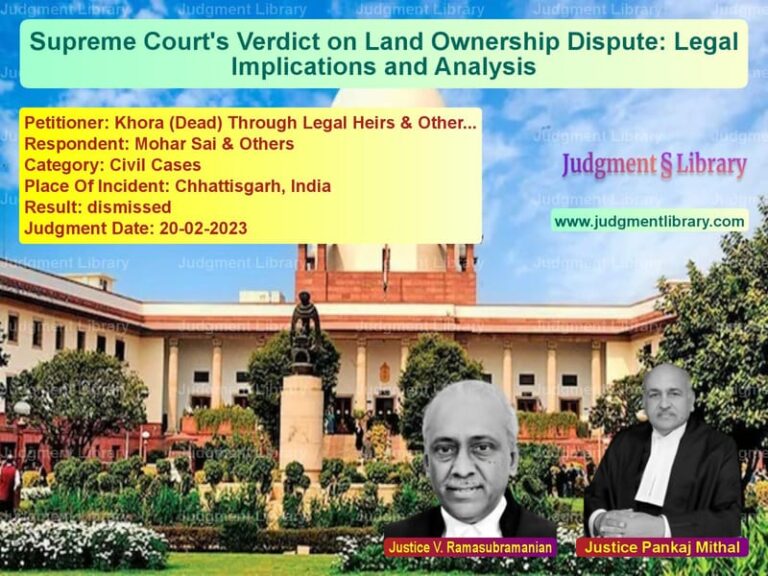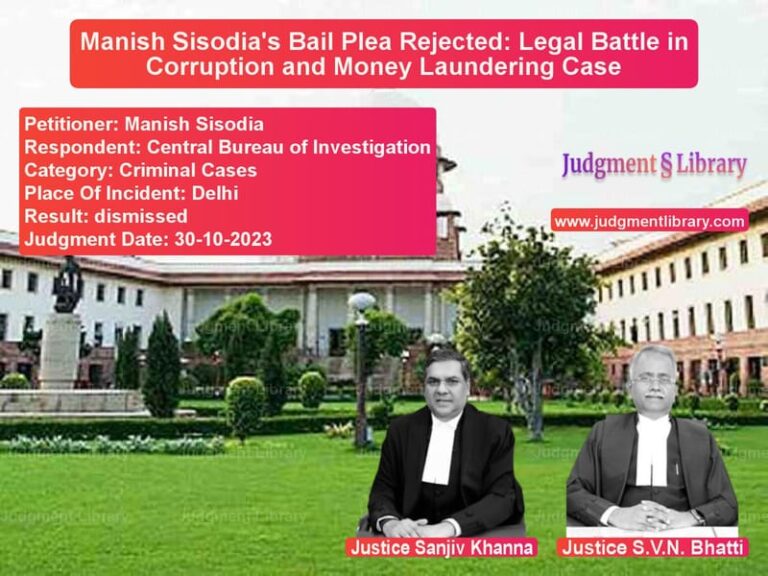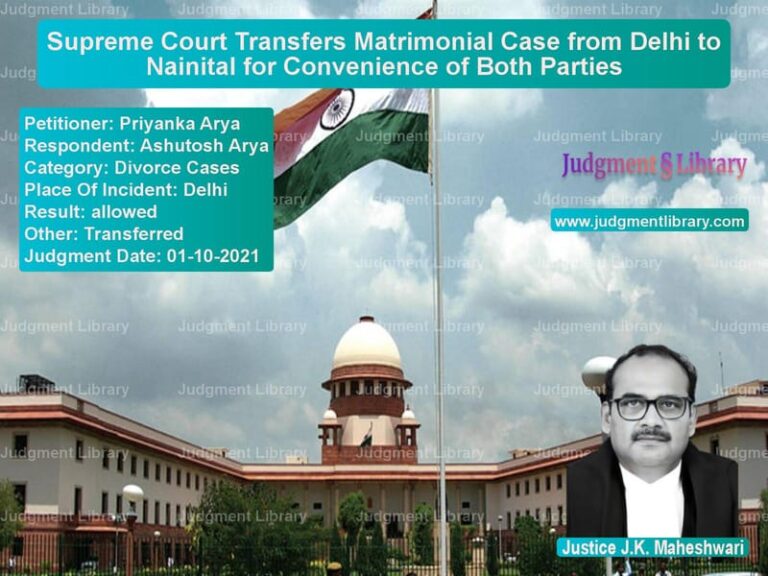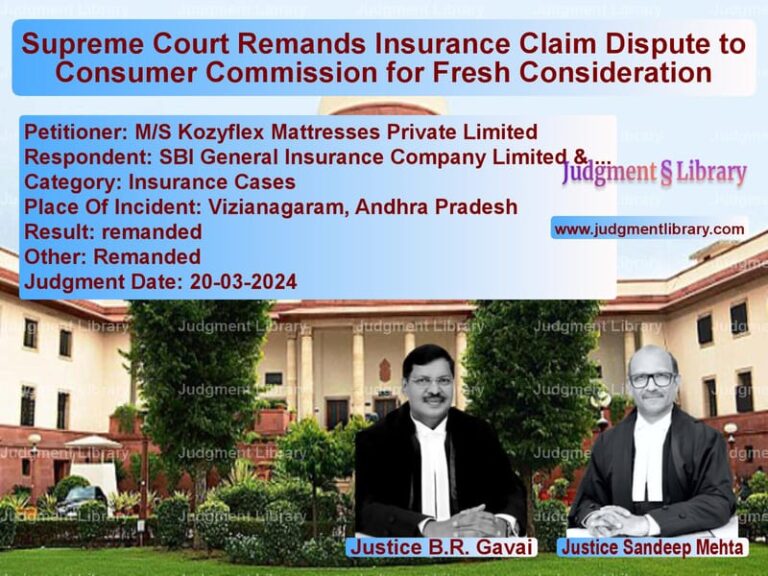Supreme Court Quashes Criminal Case Against Badminton Players Lakshya Sen and Chirag Sen in Age Fraud Allegations
In a landmark judgment that underscores the importance of protecting citizens from malicious legal proceedings, the Supreme Court of India has delivered a significant verdict quashing criminal proceedings against renowned badminton players Lakshya Sen, Chirag Sen, their parents, and their coach Vimal Kumar. The judgment, delivered on July 28, 2025, brings relief to the sporting fraternity and establishes important legal principles regarding the prevention of abuse of criminal process.
The legal battle began when Nagaraja M.G. filed a complaint before the Police Inspector of High Grounds Police Station in Bengaluru, alleging that the Sen brothers had misrepresented their dates of birth to gain unfair advantage in age-restricted badminton tournaments. The complaint claimed that Chirag Sen and Lakshya Sen, with the assistance of their parents and coach, had fabricated birth records to qualify for Under-13 and Under-15 categories, thereby securing wrongful selection and monetary benefits.
When authorities initially did not register an FIR based on the complaint, the complainant approached the judicial magistrate, who directed investigation under Section 156(3) of the Criminal Procedure Code. This led to the registration of FIR No. 194/2022 on December 1, 2022, invoking serious charges including cheating, forgery, and using forged documents under Sections 420, 468, 471 read with Section 34 of the Indian Penal Code.
The Legal Challenge
The appellants challenged these proceedings before the Karnataka High Court, arguing that identical allegations had been thoroughly examined and closed by competent authorities nearly a decade earlier. They presented evidence showing that the Sports Authority of India (SAI), the Central Vigilance Commission (CVC), and the Education Department of Karnataka had all investigated the matter and found no substance in the allegations.
Specifically, on February 6, 2018, the CVC had issued an official memorandum stating that “the Commission was of the view that Birth Certificate and 10th Class Certificate are final.” Based on this finding, SAI had closed the case against the appellants. Despite this clear administrative closure, the complainant initiated fresh criminal proceedings after nearly eight years, prompting the appellants to approach the High Court for quashing of the FIR.
The High Court, however, dismissed their petitions, observing that the documents presented by the complainant prima facie disclosed grounds for investigation and that prior administrative verifications would not preclude criminal prosecution where cognizable offenses were alleged.
Arguments Before the Supreme Court
Senior Advocate Mr. C.A. Sundaram, representing the appellants, presented compelling arguments before the Supreme Court. He contended that “the FIR and the underlying complaint are a textbook instance of abuse of process, instigated by personal hostility and designed to harass the appellants for reasons wholly extraneous to law.”
He emphasized that the entire case was built upon an unverified and unauthenticated GPF nomination form from 1996, which had never been subjected to forensic scrutiny. The senior counsel argued that “the appellants’ date of birth are consistently recorded in statutory documents issued by the competent authorities, none of which have ever been challenged or disproved.”
Mr. Sundaram further highlighted the appellants’ standing in the sporting world and the potential damage such proceedings could cause to their careers. He submitted that “allowing the proceedings to continue, despite institutional clearance by the Sports Authority of India, Badminton Authority of India, and Central Vigilance Commission, would not only cause grave prejudice to the appellants’ sporting careers but would also undermine public confidence in the sanctity of investigative findings arrived at by these specialized agencies.”
The respondents, however, maintained that the 1996 GPF form indicated earlier knowledge of the players’ dates of birth within the family and alleged subsequent alterations for eligibility benefits. They argued that institutional exoneration at the administrative level did not preclude criminal investigation and that the medical age assessments conducted earlier were not conclusive.
Supreme Court’s Analysis
The Supreme Court bench comprising Justices Sudhanshu Dhulia and Aravind Kumar conducted a thorough examination of the case and delivered a comprehensive judgment. The court observed that “Upon careful consideration of the pleadings, documents on record, and rival contentions, we are of the firm view that the present case falls squarely within the category of exceptional circumstances warranting interference at the threshold to prevent abuse of the criminal process.”
The court critically examined the foundation of the complaint and noted that “The entire edifice of the complaint is built upon a solitary document, the 1996 GPF nomination form—which is not only bereft of authentication, but also fails to establish any fraudulent intent or act attributable to the appellants.”
The judgment made significant observations about the legal requirements for establishing the offenses charged. The court stated that “Insofar as the applicability of Sections 420, 468, and 471 IPC is concerned, the complaint does not disclose the basic elements required to attract these offences. There is no allegation that any of the appellants forged or fabricated a document, or that they knowingly used a forged document as genuine. Equally, there is no averment that any person or authority was dishonestly induced to part with property or confer a benefit as a result of any such act.”
The court particularly noted the timing and motivation behind the complaint, observing that “What is of greater concern is the evident pattern of vindictiveness that permeates the complaint. The undisputed timeline indicates that the complainant’s grievances commenced only after his daughter was denied admission to the academy in 2020.”
Medical and Administrative Findings
The Supreme Court gave significant weight to the fact that the issue of age discrepancy had already been subjected to rigorous scrutiny by competent authorities. The court noted that “The SAI, on receiving complaints, initiated a verification process in 2016, which included medical testing and factual inquiries. The players underwent bone ossification and dental examination tests conducted at government-run hospitals including AIIMS, Delhi. The findings of these tests supported the birth years as recorded in official documents.”
The judgment acknowledged that while administrative findings are not conclusive for criminal liability, “they do bear relevance when evaluating whether a complaint discloses prima facie grounds to proceed further. We are not concerned here with a case where material is being unearthed for the first time. Rather, the complainant seeks to reopen settled issues that have already been examined thoroughly and closed, without any allegation of fraud or suppression in those proceedings.”
Protection Against Abuse of Process
The Supreme Court reinforced the important legal principle that criminal law should not be used as a tool for harassment. The court referenced its earlier decision in State of Haryana v. Bhajan Lal, where “this Court recognized that where a criminal proceeding is instituted with an ulterior motive for wreaking vengeance, the Court has a duty to interdict such abuse.”
The judgment also cited Pepsi Foods Ltd. v. Special Judicial Magistrate, emphasizing that “summoning an accused in a criminal proceeding is a serious matter and should not be undertaken lightly.” The court noted that “This Court has repeatedly cautioned against permitting the criminal law to be used as a weapon of harassment.”
Impact on Sporting Careers
The Supreme Court took judicial notice of the appellants’ achievements and standing in the sporting world. The judgment noted that “The appellants, particularly Appellant Nos. 1 and 3, are sportspersons of national standing, having represented India in international badminton tournaments and having earned multiple accolades, including medals at the Commonwealth Games and BWF international events.”
The court expressed concern about the impact of prolonged legal battles on athletes, stating that “To compel such individuals who have maintained an unblemished record and brought distinction to the country through sustained excellence, to undergo the ordeal of a criminal trial in the absence of prima facie material would not subserve the ends of justice.”
Final Judgment and Directions
In its conclusive findings, the Supreme Court held that “Having regard to the totality of circumstances, we are of the considered opinion that the continuation of the criminal proceedings against the appellants is wholly unwarranted.” The court allowed the appeals and set aside the High Court’s order.
The Supreme Court’s final ruling was unequivocal: “Consequently, FIR No. 194/2022 dated 01.12.2022 registered by High Grounds Police Station, Bengaluru, and all further proceedings in pursuance thereof, including P.C.R. No. 14448/2022, stand quashed.”
This judgment serves as a significant precedent in Indian jurisprudence, reinforcing the courts’ role in preventing abuse of legal process and protecting citizens from malicious prosecution. It establishes that when competent authorities have thoroughly examined and closed a matter after proper investigation, reopening the same issues through criminal proceedings without fresh evidence amounts to abuse of process, particularly when the complaints appear motivated by personal vendetta rather than genuine legal grievances.
Petitioner Name: Chirag Sen and Others.Respondent Name: State of Karnataka and Nagaraja M.G..Judgment By: Justice Sudhanshu Dhulia, Justice Aravind Kumar.Place Of Incident: Bengaluru, Karnataka.Judgment Date: 28-07-2025.Result: allowed.
Don’t miss out on the full details! Download the complete judgment in PDF format below and gain valuable insights instantly!
Download Judgment: chirag-sen-and-other-vs-state-of-karnataka-a-supreme-court-of-india-judgment-dated-28-07-2025.pdf
Directly Download Judgment: Directly download this Judgment
See all petitions in Fraud and Forgery
See all petitions in Criminal Defamation
See all petitions in Other Cases
See all petitions in Judgment by Sudhanshu Dhulia
See all petitions in Judgment by Aravind Kumar
See all petitions in allowed
See all petitions in Quashed
See all petitions in supreme court of India judgments July 2025
See all petitions in 2025 judgments
See all posts in Criminal Cases Category
See all allowed petitions in Criminal Cases Category
See all Dismissed petitions in Criminal Cases Category
See all partially allowed petitions in Criminal Cases Category

